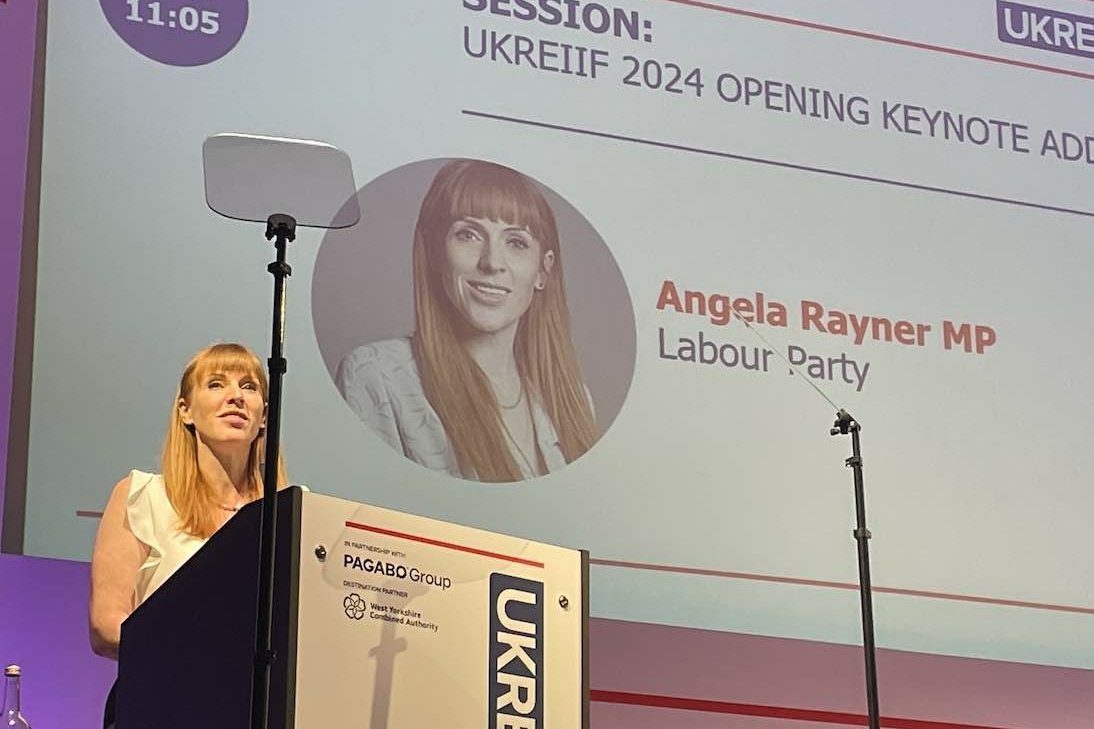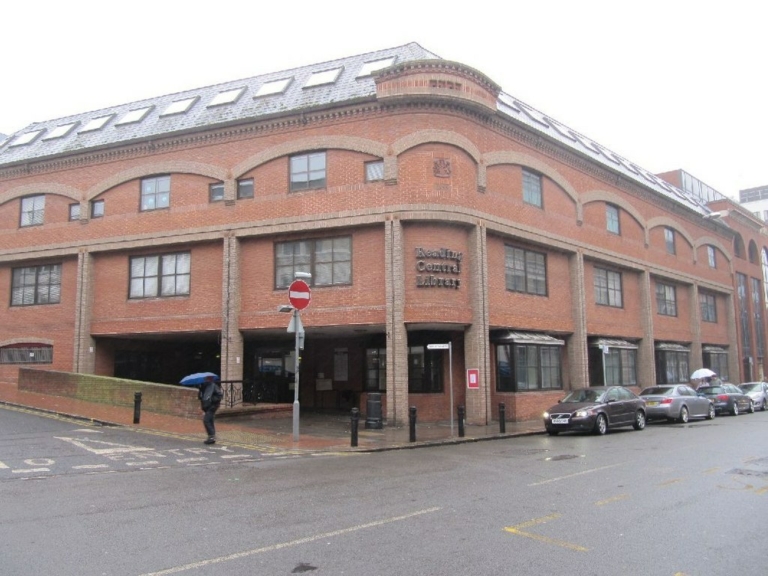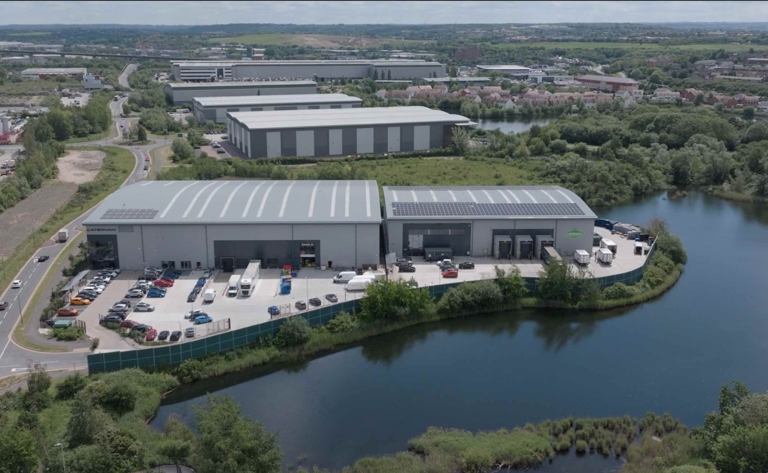Debate and discussion at UKREiif will unlock barriers to investment and drive regeneration

The property industry is out in force this week alongside local authorities and the public sector at the UK Real Estate investment and infrastructure forum, UKREiiF, in Leeds.
Teams from across the Thames Valley, the South, West of England and West Midlands were armed with enticing offers for investors, developers and occupiers supported by their professional advisers in what is essentially a beauty parade of land and opportunity.
Some regions, such as the Western Gateway (which runs east/west from Swindon through Swansea to the furthermost tip of Pembrokeshire in Wales), have a well organised and compelling offer which reflects its geographical spread and location (it’s also resurrecting tidal lagoon ambitions which the government rejected in 2018 as being too expensive financially and for wildlife. Now, almost a decade on, local leaders say that enough has changed in terms of new routes to finance and the increasing pressure to find new, sustainable and reliable forms of energy to seriously explore the project again).
Coventry and Warwickshire and the Midlands were showcasing their unique location which can serve both north and south of the UK logistically – and have a proven heritage in automotive and other manufacturing technology in particular.
In the South East there’s the Oxford/Cambridge partnership which has long been recognised by government as a globally significant area of the country and a net contributor to UK GDP. And the organisation was out in strength this year at UKREiiF to drive its message home.
Across the South of England, while there is a shared ambition to drive economic growth, there is still disagreement as to how that should look across the region.
Business leaders, organisations and local authorities remain in the early stages of working out how to work together, alongside the major city of Southampton and towns including Bournemouth, Christchurch, Poole and Chichester (which is just over the border in West Sussex) to help power the regional economy, attract more inward investment and establish it better as a cohesive entity on the world stage.
One of Dorset’s smaller coastal towns, Weymouth, set out its offer at UKREiiF this week – introducing a range of development opportunities which it hopes will help unlock Weymouth’s waterfront and boost the prospects of this historic seaside town.
Weymouth hit the national headlines in March after journalist and renowned restaurant reviewer Giles Coren said it was gorgeous. “Just the loveliest beach and promenade and buildings and colours and chip shops and pubs and people,” he said in his @TheTimes restaurant review of Catch restaurant, on the first floor of the Old Fish Market. “I think I just went to the best restaurant in the world.”
If anything is going to encourage developers and investors to make the 140-mile journey out of London through rural Dorset countryside to the sea, then a jolly good fish supper will help persuade them.
In Worcester, there's a major project to regenerate the Shrub Hill area of the city, including the Shrub Hill Industrial Estate, historic Engine Works building and the railway station itself.
Every local authority has the challenge of making their money go further, and property has long been one solution.
Those that bought commercial property at the top of the market in areas which are not performing as well – such as retail and shopping centres, have a headache but those who bought other asset classes, such as warehousing (in very short supply – particularly in the South), are quietly celebrating its rising value and regular income stream from tenants).
However, selling off urban land is a tried and tested solution.
As the leader of Southampton City Council, Lorna Fielker, pointed out at one panel session yesterday, councils can act as conveners to redeploy unused or brownfield land into new houses or other uses. The proceeds of such sales can then be invested locally. A win/win – but they also have the responsibility to make sure the land is developed to support local communities. As one panellist said at a Western Gateway presentation: “People don’t just invest for a commercial return, they want to invest in places and communities.”
I’m not always sure that all investors and developers walk the walk in this respect, although institutional investors, in particular (which have the deepest pockets), invest responsibly and for the long term, but local authorities have the power to set out the terms of development to ensure that all investors and developers build true value into the region.
Two other key topics at this year’s UKREiiF that I heard in all the marquees, halls and café/bars – housing and devolution.
Let’s take devolution first. Moving decision-making closer to the people. Sounds good.
As part of its Levelling Up strategy, published in early 2022, the government promised that by 2030 “every part of England that wants one” would have a devolution deal, backed by a simplified, long-term funding settlement. Since then a series of new devolution deals have been concluded, including in the West Midlands and the West of England Combined Authority (which covers Bristol, North and East Somerset, South Gloucestershire and Bath)
The Labour Party has also promised that it will continue this if it wins the next general election.
Like sweets in a shop window, everyone seems to want devolution – but not all regions can articulate exactly why it might help. Yes, it transfers more power and funding to local government, and decisions are made closer to the people they are likely to affect, but on the flip side, devolution can create unnecessary conflict between regional and central government over funding and priorities. If the local political party is a different colour to central government, conflicts are more likely to occur.
Though that’s not always the case – some regions and elected mayors are known for rising above party politics on occasions. Speaking at UKREiiF yesterday, Richard Parker, the newly-elected mayor of the West Midlands and a Labour politician, said that one of his first calls after his election was to the Conservative leader of Solihull District Council. Richard said he is willing to work with everyone to achieve the right outcomes for the region.
And finally, housing. Everyone knows that Britain needs more houses (or “much needed homes” as every single press release I receive says … in fact I think there’s a new word ‘muchneedednewhomes’.)
Angela Rayner MP, Labour’s Deputy Leader and Shadow Housing Secretary was the keynote speaker on Day 1 of UKREiiF. She painted a charming picture of what Labour wants to do in power to a packed auditorium (well, OK, the maximum capacity was 200, but there were around 40 standing along the sides).
“Today there are around 8.5 million people with some kind of unmet housing need.
“New homes don’t just provide families with the security to get on in life, these projects are central to creating good well-paid jobs, unlocking infrastructure like schools, hospitals, GP surgeries, and above all, sparking the economic growth Britain so desperately needs.”
You’re not wrong there Angela.
She said Labour will re-introduce local housing targets and “build from the bottom up” (I’m not entirely sure how else you can build a house, but there you go).
But Labour won’t demand “more units, at any cost”, she said.
“The reason many local communities resist new homes is often because the housing is of the wrong type, in the wrong place - it doesn’t come with the schools, GP surgeries and green spaces that make communities, not just streets,” she said.
“Labour will ban no fault evictions. We’ll give first-time buyers ‘first dibs’ on new developments in their communities, with a comprehensive mortgage guarantee scheme for those who don’t have access to the bank of mum and dad.”
“We’ll give Mayors the tools they need to deliver homes in their areas, revitalising brownfield first, unlocking ugly, disused grey belt land for housebuilding and setting tough new conditions for releasing that land.”
Labour will set out a “New Towns Code” - criteria that developers must meet in these new settlements. These include more social and affordable homes - with a gold standard aim of 40 per cent.
The new houses must be buildings with character “in tree-lined streets that fit in with nearby areas, design that pays attention to local history and identity.”
That will help stop from the current approach by many volume housebuilders that an estate house built in Guildford looks identical to that built in Gateshead.
Better planning, better transport links and better amenities.
But I think it doesn’t matter what colour your politics are, everyone wants the same. A utopian, sun-filled urban landscape. How a new government is actually going to achieve this is the question that no-one has yet answered.
But the more in-person industry get-togethers such as UKREiiF the better, because it’s only by face-to-face debate and discussion that real progress is ever made.


















